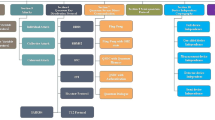Abstract
Quantum key distribution (QKD) generates a secret key for both parties of remote communication in a theoretically proven secure manner. Blind reconciliation, which does not require an estimate of qubit error rate (QBER), saves the key bits overhead of QBER estimation and improves the reconciliation efficiency. Although the current polar-code-based blind reconciliation scheme has a high level of efficiency, it also has a low throughput of secure key generation, as well as large consumption of truly random bits, communication, and computational resources. Therefore, in this paper, we propose a blind reconciliation scheme based on the inverse encoding of polar codes with adaptive step sizes. The proposed scheme improves the overall final secret key rate of a practical QKD system through step-size adaptation and decreases the consumption of truly random bits, communication, and computational resources through inverse encoding. The experimental results compared with the fixed step sizes show that the proposed protocol can greatly reduce the number of interactions with little loss of reconciliation efficiency. With 1024-bit polar codes, the proposed protocol can increase the throughput of the final secure key generation by reducing the number of interactions and communication delays by up to 38.72%. In each reconciliation of N-bit keys with an initial polar code rate k/N, k truly random bits, three operations of N-bit exclusive-OR, and one polar encoding can be saved. The inverse encoding of polar codes with length \(N = 2^{15}\) can reduce the computational time of the protocol process by 10.29%.





Similar content being viewed by others
Data Availability
The datasets generated during and/or analyzed during the current study are available from the corresponding author on reasonable request.
References
Bennett, C.H., Brassard, G.: Quantum cryptography: public key distribution and coin tossing. Theor. Comput. Sci. 560, 7–11 (2014)
Gisin, N., Ribordy, G., Tittel, W., Zbinden, H.: Quantum cryptography. Rev. Mod. Phys. 74(1), 145 (2002)
Scarani, V., Bechmann-Pasquinucci, H., Cerf, N.J., Dušek, M., Lütkenhaus, N., Peev, M.: The security of practical quantum key distribution. Rev. Mod. Phys. 81(3), 1301 (2009)
Lo, H.-K., Curty, M., Tamaki, K.: Secure quantum key distribution. Nat. Photonics 8(8), 595–604 (2014)
Brassard, G., Salvail, L.: Secret-Key Reconciliation by Public Discussion, pp. 410–423. Springer, Berlin (1993)
Buttler, W.T., Lamoreaux, S.K., Torgerson, J.R., Nickel, G., Donahue, C., Peterson, C.G.: Fast, efficient error reconciliation for quantum cryptography. Phys. Rev. A 67(5), 052303 (2003)
Elkouss, D., Leverrier, A., Alléaume, R., Boutros, J.J.: Efficient reconciliation protocol for discrete-variable quantum key distribution, pp. 1879–1883. IEEE (2009)
Jouguet, P., Kunz-Jacques, S.: High performance error correction for quantum key distribution using polar codes. arXiv preprint arXiv:1204.5882 (2012)
Martinez-Mateo, J., Elkouss, D., Martin, V.: Blind reconciliation. Quantum Inf. Comput. 12(9 &10), 0791–0812 (2012)
Kiktenko, E.O., Trushechkin, A.S., Lim, C.C.W., Kurochkin, Y.V., Fedorov, A.K.: Symmetric blind information reconciliation for quantum key distribution. Phys. Rev. Appl. 8(4), 044017 (2017)
Kiktenko, E.O., Malyshev, A.O., Fedorov, A.K.: Blind information reconciliation with polar codes for quantum key distribution. IEEE Commun. Lett. 25(1), 79–83 (2020)
Arikan, E.: Channel polarization: a method for constructing capacity-achieving codes for symmetric binary-input memoryless channels. IEEE Trans. Inf. Theory 55(7), 3051–3073 (2009)
Slepian, D., Wolf, J.: Noiseless coding of correlated information sources. IEEE Trans. Inf. Theory 19(4), 471–480 (1973)
Fuchs, C.A., Gisin, N., Griffiths, R.B., Niu, C.-S., Peres, A.: Optimal eavesdropping in quantum cryptography. I. Information bound and optimal strategy. Phys. Rev. A 56(2), 1163 (1997)
Acknowledgements
This work was supported in part by the National Key Research and Development Program of China under Grants 2018YFB1801900 and 2019YFE0123600, in part by National Natural Science Foundation of China under Grants 62171202 and 62075088, in part by Guangdong Provincial Postgraduate Education Innovation Project under Grant 2019SFKC08, in part by Project of Guangzhou Industry Leading Talents under Grant CXLJTD-201607, European Union’s Horizon 2020 research and innovation programme under the Marie Sklodowska-Curie grant agreement under Grant 872172 (TESTBED2 project: www.testbed2.org).
Author information
Authors and Affiliations
Corresponding author
Additional information
Publisher's Note
Springer Nature remains neutral with regard to jurisdictional claims in published maps and institutional affiliations.
Rights and permissions
Springer Nature or its licensor holds exclusive rights to this article under a publishing agreement with the author(s) or other rightsholder(s); author self-archiving of the accepted manuscript version of this article is solely governed by the terms of such publishing agreement and applicable law.
About this article
Cite this article
Xie, J., Jiang, C., Lin, J. et al. Blind reconciliation based on inverse encoding of polar codes with adaptive step sizes for quantum key distribution. Quantum Inf Process 21, 349 (2022). https://doi.org/10.1007/s11128-022-03692-6
Received:
Accepted:
Published:
DOI: https://doi.org/10.1007/s11128-022-03692-6




